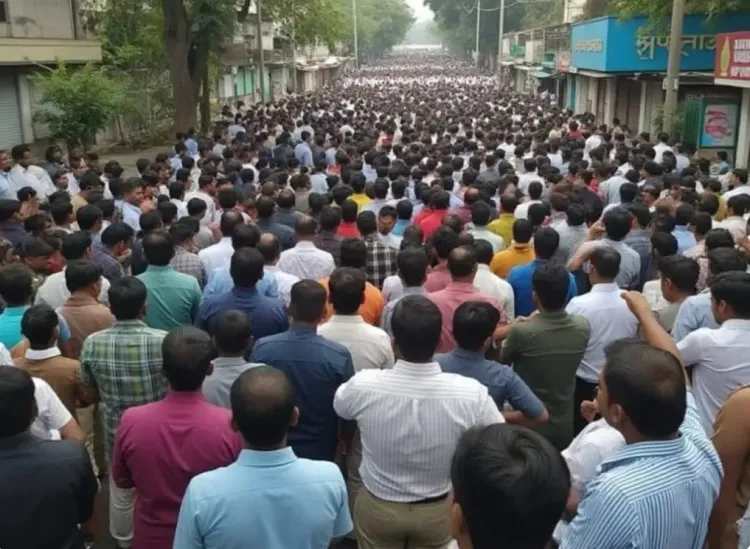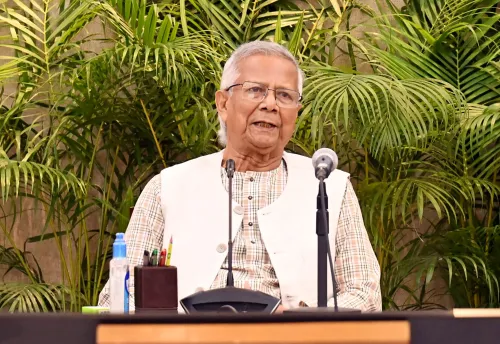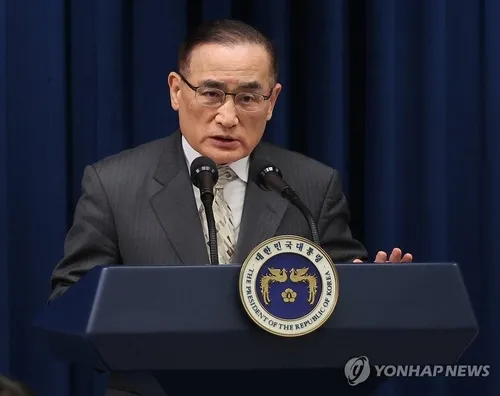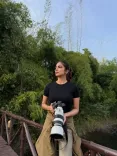Are 398 Cases of Journalist Attacks a Reality in Bangladesh?

Synopsis
Key Takeaways
- 398 incidents of journalist attacks reported.
- Concern over freedom of the press in Bangladesh.
- ASK highlights inadequate protections for media professionals.
- Unfounded accusations against journalists threaten press freedom.
- The need for accountability and safeguarding human rights.
Dhaka, May 3 (NationPress) The ongoing incidents of journalist harassment in Bangladesh have unveiled the stark reality of the challenges the South Asian nation is confronting under the leadership of the interim government led by Muhammad Yunus, as reported by local media.
As the world commemorates World Press Freedom Day 2025, this year's theme is 'Reporting in the Brave New World -- The Impact of Artificial Intelligence on Press Freedom and the Media'.
The rights organization Ain O Salish Kendra (ASK), based in Dhaka, recently disclosed that from August 2024 to March 2025, a total of 398 incidents of attacks and harassment against journalists were documented, with 82 of those occurring in February and March alone.
The statistics reveal that 40 incidents were recorded in March, another 40 in February, and 20 in January.
In a related development, ASK expressed deep concern on Friday over the recent termination of three TV journalists, the identification of at least 137 journalists as defendants in relation to last July's uprising, and the initiation of attempted murder charges against cultural activists.
"The essence of any society lies in respecting the fundamental rights of its citizens. When these rights are undermined through legal or other means, it constitutes persecution," stated the rights organization.
ASK further noted that the current actions taken by the interim government to safeguard media and cultural activists seem insufficient, emphasizing that these occurrences contradict principles of good governance and human rights, as reported by the prominent Bangladeshi newspaper, The Daily Star.
Moreover, a recent report from the renowned media watchdog, Reporters Without Borders (RSF), pointed out that following the regime change, nearly 140 journalists perceived to be sympathetic to the former Prime Minister Sheikh Hasina's administration faced serious yet unfounded accusations of killing protesters.
Twenty-five of them were charged with "crimes against humanity," which has driven many into hiding to evade arrest and imprisonment, according to RSF.
"Numerous journalists are caught in murder cases reportedly linked to Sheikh Hasina's government. While some may be involved in corruption or other offenses, cases should be substantiated with specific allegations rather than generalized as murder cases," commented Sohel Haider, former president of the Dhaka Union of Journalists, in an interview with the leading daily, New Age.
A report released in January by Human Rights Watch criticized the widespread prosecution of journalists under the Yunus administration.
"While it is essential to hold accountable those involved in grave crimes committed during the uprising, mass prosecutions of journalists for not supporting the protesters send a dangerous message regarding freedom of expression under the interim government," the report asserted.










